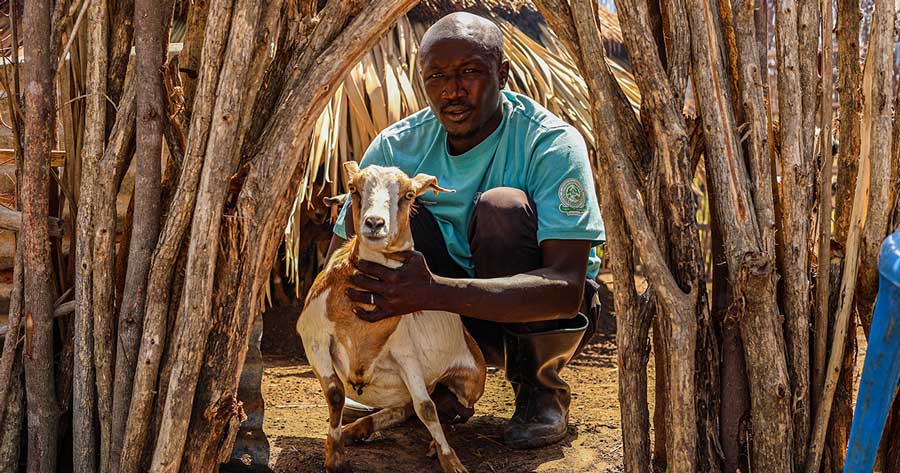
Building Livelihood Resilience for Livestock Farmers in Torit County, South Sudan
November 17, 2025
In the heart of South Sudan, livestock is a cornerstone for many communities, providing essential nutrition, income and stability. With an estimated 57% of the population experiencing acute hunger as a result of conflict and climate-related challenges, food insecurity is further exacerbated by limited veterinary services, livestock management issues and disease outbreaks that pose risks to farmer livelihoods.
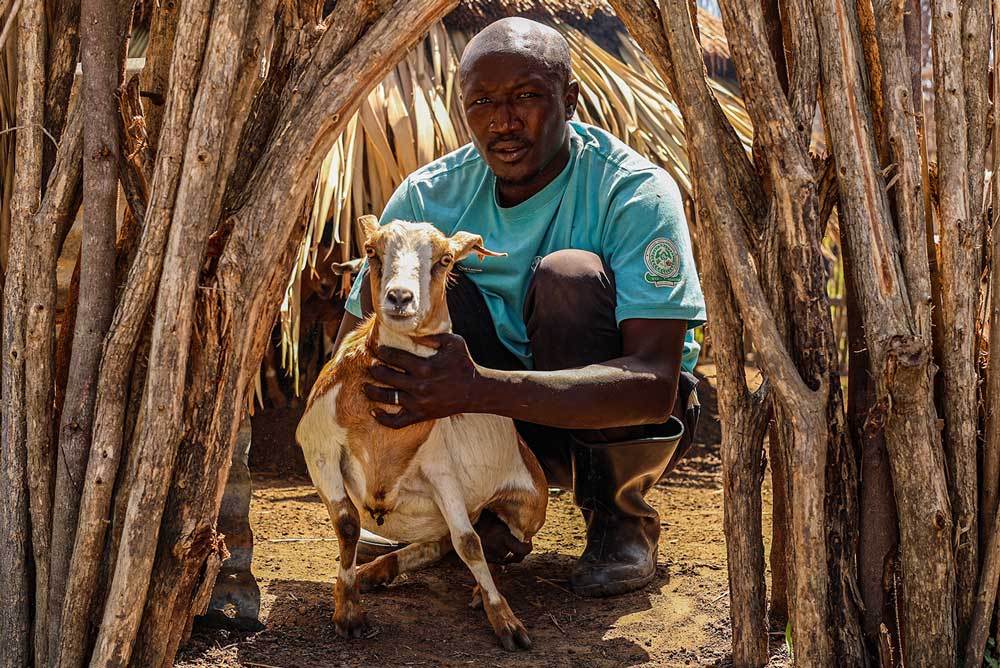
The Zoetis Foundation provides grant support to Veterinarians Without Borders’ (VWB) to help advance opportunities for livestock farmers in Torit County, South Sudan. By leveraging a One Health approach—which recognizes the deep interconnection between the health of people, animals and the planet—this initiative expands access to veterinary care, restores livestock assets, strengthens disease surveillance and prevention, and provides training in livestock management to farmers and local animal health workers, all with the goal of building long-term resilience and food security.
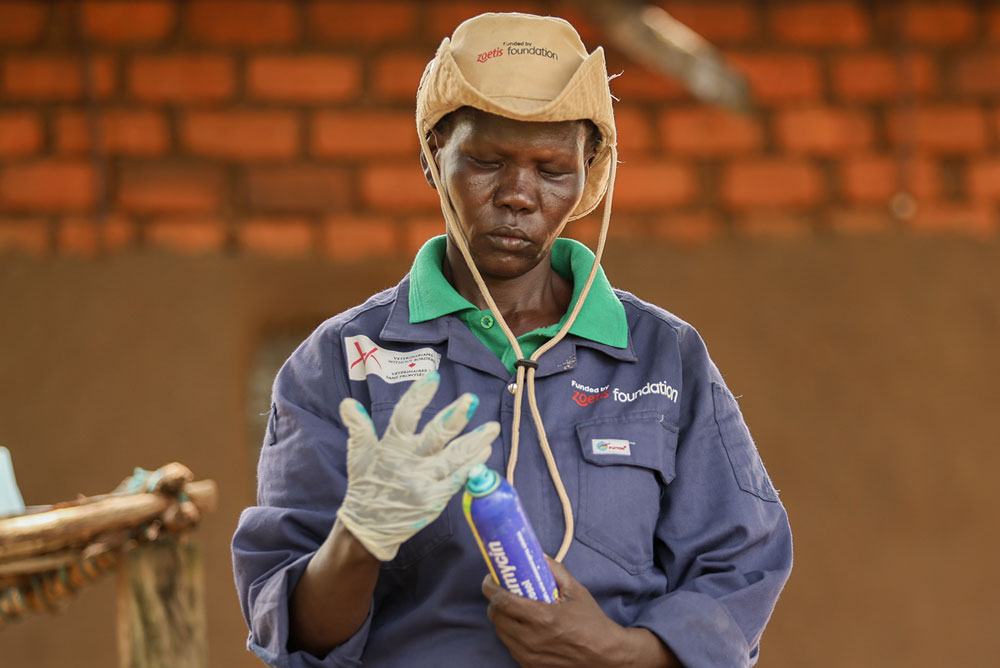
From March 2023 to March 2024, 88% of participating farmers utilized Community Animal Health Worker (CAHW) services and 500 farmers received training in livestock production and animal health management — contributing to 72% of participating farmers reporting improved livelihoods, and 58% reporting enhanced food security.
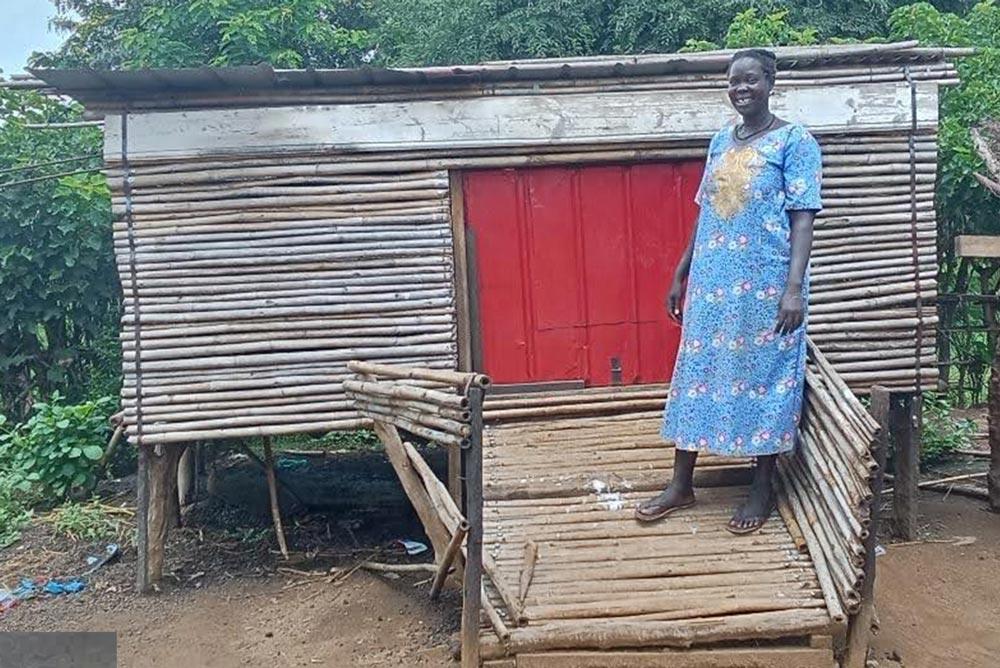
For pastoralists like Jenifer Fatna John, a beneficiary in Enyif, Torit County, the program has transformed both her farm and her community, creating lasting economic opportunity. “There was training on livestock practices like housing, feeding, breeding management, and herd health management,” she explained.
“The new skills and knowledge improved livestock health, with reduced mortality and morbidity, and strengthened food and nutrition security through better use of manure and crop diversifications. Taking care of the environment for both livestock and human well-being reduced disease in our community, for both people and their animals.”
Jenifer Fatna John
She added, “Veterinary services and early disease detection also improves economic empowerment. The project especially supported women through livestock ownership and management, which has increased household income and purchasing power.”
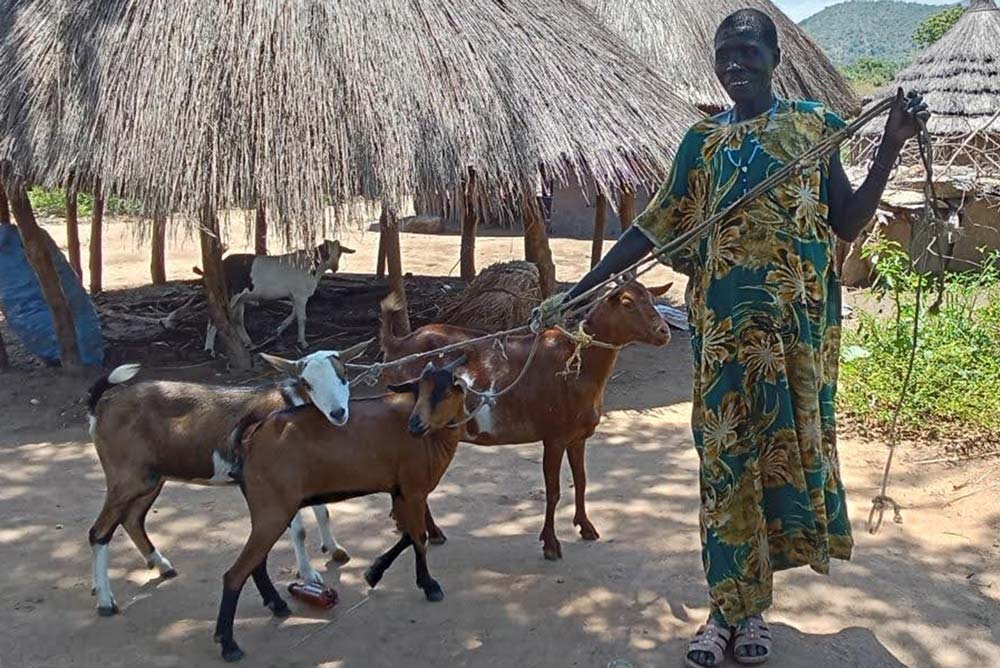
For Betty Juan Taban, a participant in Isaloro, Imurok Payam, Torit County, the program strengthened both livestock health and household stability. “We have access to information and training on improved feeding and nutrition, health, housing, and pasture management that’s resulted in improved farm productivity,” she said. “The regular checks and advisory services from Community Animal Health Workers and veterinarians have reduced the cost of treatment and improved livestock health and production by lowering morbidity and mortality cases,” Betty explained. The training also opened new economic opportunities.
“I gained the skills and knowledge to move my goat business forward. I now have a plan to grow my herd to 30 goats, sell goats and use the income to support my family. I have hope now for building a better business, and my children will learn from me.”
Betty Juan Taban
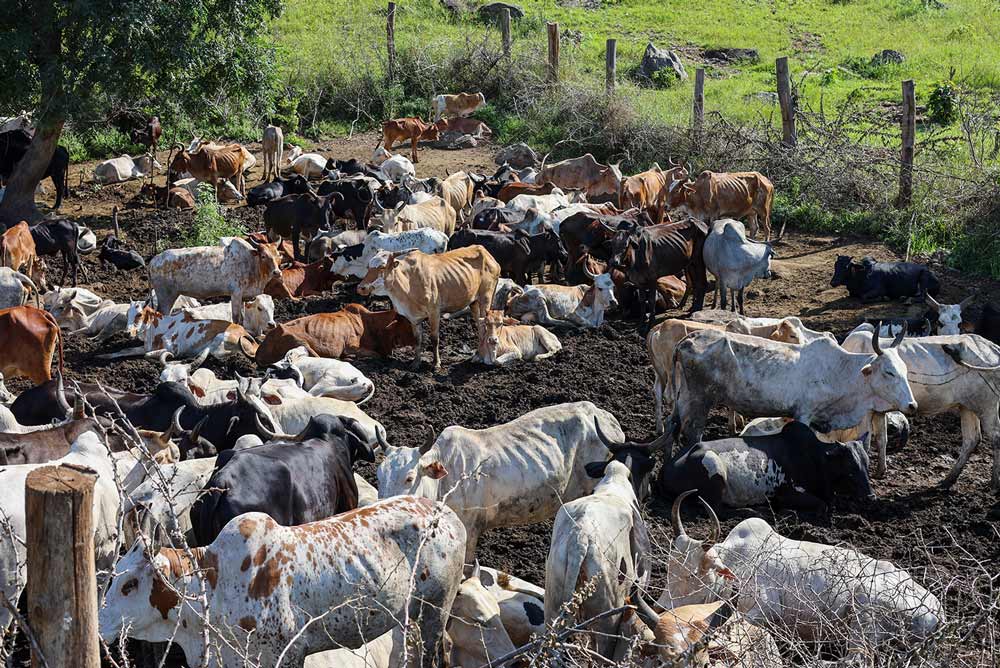
Looking ahead, VWB plans to expand and deepen the project’s impact through March 2026, building on the foundation of strengthened community-led animal health systems and improved access to veterinary services. By funding critical programs like this, the Zoetis Foundation is continuing to advance opportunities for livestock farmers.